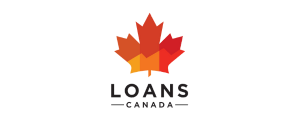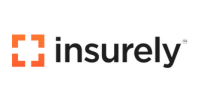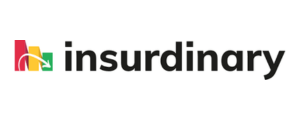Home insurance, no one actually wants to deal with it or pay for it. But, when your biggest asset is damaged, having the right home insurance is priceless (well not really but you know what we mean).
Life is unpredictable, from rouge ice storms to unfortunate break-ins. Plus don’t forget that mortgage providers require you to purchase home insurance. Simply put, insurance is necessary for a homeowner. The only thing you can do to make the process a little less stressful? Research the best home insurance companies, and find the right one for your needs.
Best Home Insurance Companies In Canada
Insurely

Insurely offers home and tenant insurance policies across Canada (excluding Quebec). With an emphasis on customer service and a quick online application, Insurely makes getting home insurance a breeze. Plus, Canadians can get a free online quote in 5 minutes from the comfort of their home.
Insurely home insurance policies are comprehensive and offer coverage for everything that a Canadian homeowner might need. Excluding any named perils. As mentioned above, Insuraley is all about making the home insurance process as easy as possible. Clients can pay for their policies with their credit or debit cards and edit their policies online.
Insurely Main Features
- Availability: Across Canada (excluding Quebec)
- Free online quote: Yes
- App: No
- Discounts: Discounts may be available (security systems, age of dwelling, age of insured, credit score, deductibles)
Square One

If you’re looking for home or tenant insurance, you can get a policy with rates as low as $12 a month with Square One Insurance. They are an online insurance agency that was first established in 2011. Their goal is to change the antiquated processes of traditional insurance policies and offer personalized policies that are easy to understand.
They’ve also centralized their sales and services from their head office in Vancouver to reduce costs and pass on the savings to their clients. Moreover, with Square One Insurance, you’re not forced into a contract, you can choose to pay annually or monthly with no fixed term.
Square One Main Features
- Availability: BC, AB, SK, MB, ON, QC
- Free online quote: Yes
- App: Yes
- Discount for bundles: No specific discounts advertised
Insurdinary

Insurdinary allows Canadians across the country (excluding QC and NL) to shop for all their insurance needs in one place. Insurdinary is an online platform created to help you compare multiple options and find the lowest rates in the country. If you’re in the market for a new home insurance provider, Insurdinary offers free personalized quotes for as little as $12 a month.
Insurdinary Main Features
- Availability: BC, AB, SK, MB, ON, NB, NS, PEI
- Free online quote: Yes
- App: Yes, but not for insurance
- Discount for bundles: No specific discounts advertised
Onlia Insurance

Onlia Insurance offers residents of Ontario home, condo, tenant, and car insurance completely online. Established in 2017, Onlia is known for its affordable rates, premium coverage and easy-to-use platform for insurance policy shopping. Moreover, Ontarians can use Onlia’s platform to get a free home insurance quote within minutes.
Onlia’s standard home insurance policies include coverage for personal property, personal liability, temporary housing expenses and coverage for detached properties such as sheds or fences. Additionally, Onlia home insurance policies offer a number of discounts as well as extra features that make it unique, including; inflation protection, identity theft, home-sharing insurance, and guaranteed replacement costs.
Onlia Main Features
- Availability: Ontario
- Free online quote: Yes
- App: Yes, but car insurance is the main focus (available in the App Store and on Google Play)
- Discounts:
- Potential to save 20% on your home insurance and 15% on your car insurance when you bundle
- Potential to save 5% with a monitored alarm system
- Potential to save 10% to 50% when you allow a soft credit check
- Potential to save 15% when you insure a mortgage free house
- Potential to save 5% after 3 years of being an Onlia client
Apollo

Apollo is an online insurance provider that is redefining the insurance landscape. They offer a variety of insurance policies including tenant insurance, home insurance, condo/townhouse insurance, landlord insurance and small business insurance. If you’re looking for a fast and easy application process that can be completed entirely online, Apollo is a great choice.
Moreover, they have an online portal where you can sign into and manage your policy. Similarly, they have insurance advisors available via email, phone or chat to help you with any questions you may have.
Apollo Main Features
- Availability: AB, BC, SK, NS, ON
- Free online quote: Yes
- App: No
- Discount for bundles: No specific discounts advertised
How To Choose From The Best Home Insurance Companies
Before you choose an insurance company to insure your home, you may want to consider a few factors:
Reviews
A great way to start your search for a home insurance company is by checking out online reviews. Also, take these reviews with a grain of salt, and try to gain an overall sense of each insurance company by scanning through many reviews rather than focusing on a handful.
Customer Service
Give a few companies a call to get a sense of what it would be like to deal with each. The way the representatives handle the calls – and how quickly you’re able to get through – will give you an idea of what the company’s customer service is like.
Policies Offered
This one might be common sense, but it’s also a way to cut down the list. Obviously, make sure the home insurance company offers the type of home insurance you want. But, also make sure they offer the add-ons or riders you need.
Policy Prices
Another straightforward way to find the best home insurance company for you. Especially if you’re worried about the cost. How do they price their policies and how do their prices compare to other similar options?
Method Of Buying Insurance
You can purchase home insurance in a variety of different ways. Finding the method that you like the most will make the process smoother. Make sure you consider whether the home insurance companies you’re looking at are insurance providers, insurance brokers, or online aggregators.
Website And App
Is the website of a home insurance company easy to navigate? Do they offer an app where you can submit a claim and easily access your insurance papers?
What Is Covered By Home Insurance In Canada?
Everyone’s home insurance policy is different and tailored to the needs of you and your home. But generally, policies offer protection for:
The Dwelling
The actual house itself is the most obvious thing that is covered under a home insurance policy. That includes any structures that are attached to your home, such as an attached garage or deck. If your home is completely damaged, the amount of coverage you would receive would be based on the square footage of the structure and how much it would cost to rebuild your home as it was.
Additional Structures
Any structures that are not attached to your home, such as a detached garage or shed, may also be covered under a home insurance policy.
Personal Property
Certain items within your home are also covered if they are stolen or damaged, such as furniture, electronics or other items specifically listed in the policy documents.
Personal Liability
Your home insurance policy will protect you against any liability if someone who visits your home is injured or any of their belongings are damaged. This portion of your policy will cover the cost of repair, medical bills, or legal fees if litigation ensues as a result.
Additional Living Expenses
If your home becomes unsafe to live in after a catastrophe, your policy may cover the cost of temporary living expenses, like hotel bills or short-term rentals.
What Is Not Covered By Home Insurance In Canada?
Home insurance certainly covers quite a bit, but it doesn’t cover everything. There are some things that are usually not covered under a typical policy, including the following:
Flood Damage
Any water damage caused by a flood, a burst pipe, a toilet overflowing, or sewer backup is not covered under a standard policy. You would have to take out enhanced coverage or a rider to cover this type of damage. The premiums and eligibility will depend on where you live, your claim history, and the insurance provider.
Earthquake Damage
If your home is damaged as a result of an earthquake, coverage may not be offered. Earthquakes are less likely in some parts of Canada than others, but there are areas where an earthquake would be more likely, such as in British Columbia. If you want additional coverage for earthquake damage, you will have to purchase an add-on to your policy.
Hurricane Damage
“Hurricane insurance” as a standalone policy doesn’t exist. Instead, you should review your current home insurance policy to determine the extent of coverage it provides for damage caused by hurricanes. For example, wind damage, flooding, and sewer backup.
In many instances, it may be necessary to supplement your existing policy by adding specific riders to ensure sufficient coverage for your home.
Damage From Pests
Infestations from termites, bugs, birds, rodents, and other pests can cause significant damage, but it won’t be covered by a standard policy. Again, additional coverage would have to be added.
Wear And Tear
Like anything else in life, age can cause wear and tear to your home. Eventually, things will start to break down and deteriorate, which is natural. Anything that falls under this category of gradual deterioration will not be covered by your policy.
Neglect Or Damage On Your Part
If you do not take care of your home or are personally responsible for damaging it, your insurance policy won’t cover you.
Types Of Home Insurance Policies
Not all home insurance policies are created equal. There are several types of home insurance for you to choose from, including the following:
No Frills Home Insurance Policy
If your home doesn’t qualify for a standard policy, then a no frills policy might do. As you would imagine, this type of policy offers just the basics without all the frills of more expensive and comprehensive policies. If you end up fixing the home, it may eventually be eligible for better coverage.
Comprehensive Home Insurance Policy
As the name suggests, a comprehensive policy offers much more coverage than you would get with a no frills plan. Instead, a comprehensive policy will provide coverage for the structure and all its contents, except for exclusions specified in the policy.
Generally speaking, two types of risks are not included in this type of policy, including predictable and uninsurable perils, and optional or additional coverage, such as flood or earthquake damage. Otherwise, this policy will cover damage or loss from fire, theft, lightning, or aircraft/vehicle impact.
Basic/Named Perils Home Insurance Policy
If you’re strapped for cash or don’t think you need extensive coverage, then a Basic or Named Perils policy may be sufficient. With this policy, only items that are specifically named will be covered.
Broad Insurance Home Insurance Policy
Somewhere in the middle of a basic and comprehensive policy is a Broad policy, which offers comprehensive coverage on more expensive items, such as the structure, as well as contents that are specifically named.
Personal Liability Home Insurance Policy
If anyone is injured while on your property or any of their personal items are damaged, lost, or stolen, you could be held liable. But with Personal Liability insurance, you can be covered for any litigation that may be brought against you, or for any medical bills that may be charged to you.
What Affects The Cost Of Home Insurance?
There are many things that can impact the cost of your home insurance premiums, including the following:
- Location – Certain areas may be considered higher risk than others. For example, if you live in an area that is susceptible to forest fires or landslides, your premiums might be more expensive because you would be considered a higher risk.
- Crime In The Area – High-crime areas are also a higher risk for insurers. Homes located in these communities may be subject to more expensive premiums.
- Size Of The Home – Generally speaking, the more square footage your home has, the higher your premiums will be.
- Condition And Age Of The Home – If your home is old, is showing obvious signs of wear and tear, or is in poor condition, your home insurance policy will cost you more than if your home was newer and in impeccable condition.
- Credit Rating – In some cases, an insurance provider may assess your credit score to determine the rate you are charged. Much like when you apply for a loan, a higher credit score could result in a lower premium.
- Claims History – If you have a history of claims, your premiums will likely be higher. That’s because you will be considered a higher-risk client, which would warrant more expensive rates.
- Deductible – Before a payout is made after filing a claim, a deductible will first need to be paid. After the deductible is paid, the policy’s coverage will kick in. Generally speaking, a higher deductible means lower premiums and vice versa.
How To Choose A Home Insurance Policy?
When choosing a policy to cover your home and its belongings, consider the following factors:
- Cost. Of course, the cost of the policy will be something to consider. You’ll want to make sure the premiums you are required to pay fit within your household budget.
- Cost-benefit ratio. Weigh the benefits of a home insurance policy and the cost of having one in place. Does the cost justify the benefits received? If not, you may want to consider a more affordable option that comes with fewer perks and coverage.
- Service model. In some cases, insurance providers may hand over claims to external adjustment firms when the claim amount is far higher than what they are used to handling.
- Coverage. Make sure the policy you take out provides you with the appropriate amount of coverage that you require. You also want to make sure you are not paying for more coverage than you need.
- Deductible. Make sure you understand what your deductible is. If your deductible is high, it’s important to know that before you decide to make a small claim. Your deductible could be more than the cost of the claim.






